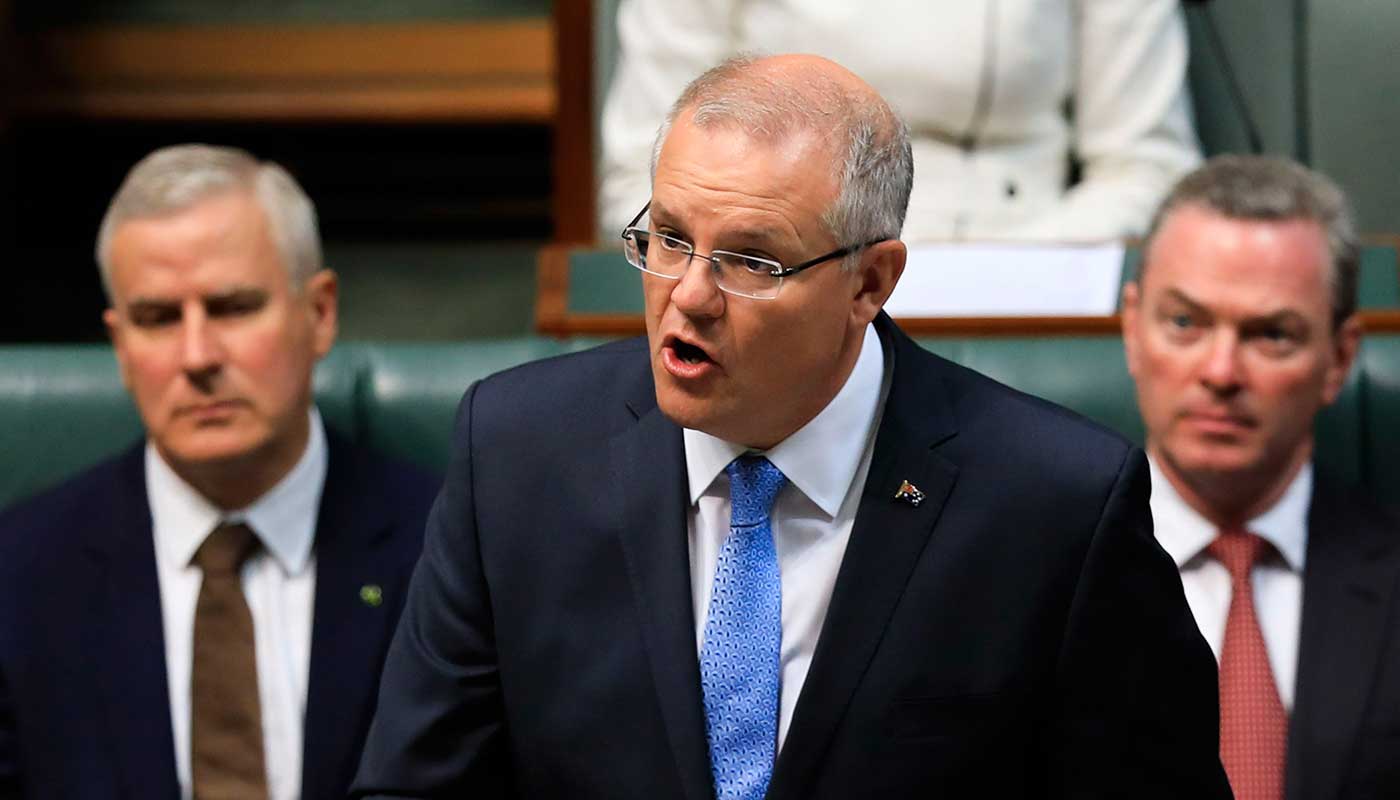Australian PM apologises to victims of child sexual abuse
Scott Morrison delivers emotional address to parliament following five-year inquiry

A free daily email with the biggest news stories of the day – and the best features from TheWeek.com
You are now subscribed
Your newsletter sign-up was successful
Australian prime minister Scott Morrison has delivered an emotional apology to thousands of victims of child sexual abuse on behalf of the nation.
In a speech broadcast live around the country, Morrison (pictured above) broke down in tears, saying the trauma suffered by children who were abused in schools, churches and youth groups for decades had been “hiding in plain sight for too long”.
“Today, we finally acknowledge and confront the lost screams of our children,” Morrison told the Australian parliament. “We must be so humble to fall before those who were forsaken and beg to them our apology.”
The Week
Escape your echo chamber. Get the facts behind the news, plus analysis from multiple perspectives.

Sign up for The Week's Free Newsletters
From our morning news briefing to a weekly Good News Newsletter, get the best of The Week delivered directly to your inbox.
From our morning news briefing to a weekly Good News Newsletter, get the best of The Week delivered directly to your inbox.
The national apology comes after a five-year inquiry into institutional responses to child sexual abuse, which uncovered thousands of instances of abuse “at a wide spectrum of institutions reaching back decades”, CNN says.
Hundreds of victims of institutional abuse gathered at Parliament House to watch the address.
“There are few moments where a hush comes over Capital Hill,” said the ABC’s Matthew Doran. “This apology has been one of them.”
One survivor of sexual abuse told the BBC: “For me it gave me a lot of comfort to hear [the apology]. At least we lived long enough to hear it.”
A free daily email with the biggest news stories of the day – and the best features from TheWeek.com
-
 What to know before filing your own taxes for the first time
What to know before filing your own taxes for the first timethe explainer Tackle this financial milestone with confidence
-
 The biggest box office flops of the 21st century
The biggest box office flops of the 21st centuryin depth Unnecessary remakes and turgid, expensive CGI-fests highlight this list of these most notorious box-office losers
-
 The 10 most infamous abductions in modern history
The 10 most infamous abductions in modern historyin depth The taking of Savannah Guthrie’s mother, Nancy, is the latest in a long string of high-profile kidnappings
-
 Epstein files topple law CEO, roil UK government
Epstein files topple law CEO, roil UK governmentSpeed Read Peter Mandelson, Britain’s former ambassador to the US, is caught up in the scandal
-
 Iran and US prepare to meet after skirmishes
Iran and US prepare to meet after skirmishesSpeed Read The incident comes amid heightened tensions in the Middle East
-
 Israel retrieves final hostage’s body from Gaza
Israel retrieves final hostage’s body from GazaSpeed Read The 24-year-old police officer was killed during the initial Hamas attack
-
 China’s Xi targets top general in growing purge
China’s Xi targets top general in growing purgeSpeed Read Zhang Youxia is being investigated over ‘grave violations’ of the law
-
 Panama and Canada are negotiating over a crucial copper mine
Panama and Canada are negotiating over a crucial copper mineIn the Spotlight Panama is set to make a final decision on the mine this summer
-
 Why Greenland’s natural resources are nearly impossible to mine
Why Greenland’s natural resources are nearly impossible to mineThe Explainer The country’s natural landscape makes the task extremely difficult
-
 Iran cuts internet as protests escalate
Iran cuts internet as protests escalateSpeed Reada Government buildings across the country have been set on fire
-
 US nabs ‘shadow’ tanker claimed by Russia
US nabs ‘shadow’ tanker claimed by RussiaSpeed Read The ship was one of two vessels seized by the US military